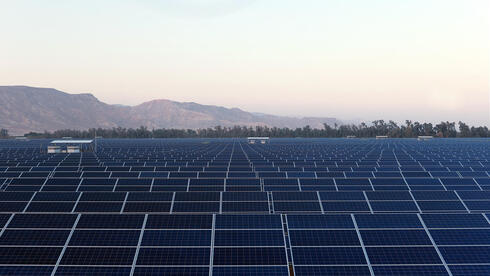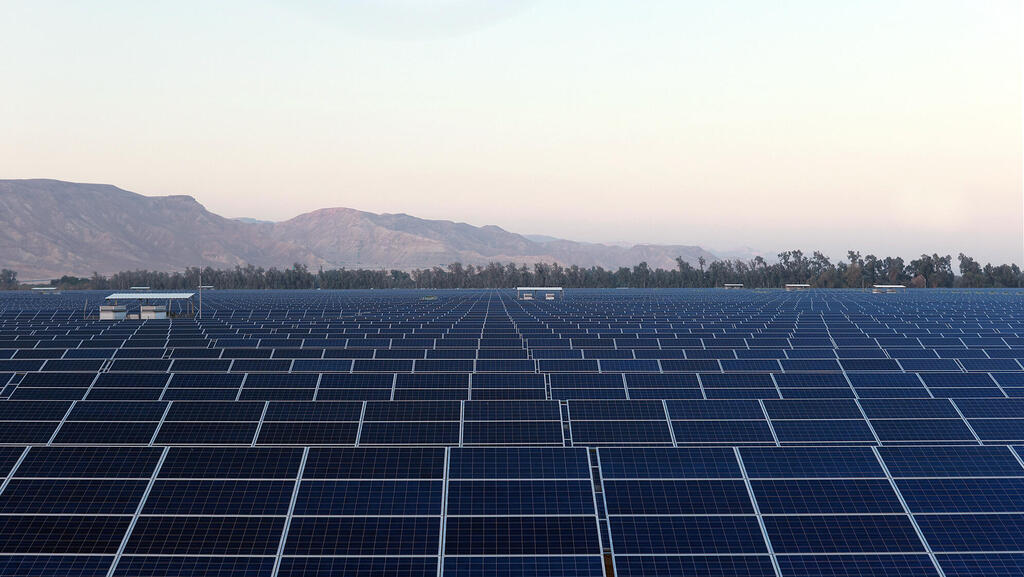
Power failure: Only 14% of Israel’s electricity generated from renewable energy
In 2024, 48% of electricity in the European Union came from clean sources like wind and solar, compared to just 14% in Israel. The goal of phasing out coal is slipping further away, costing the economy billions.
Israel continues to fall short of the modest renewable energy targets it has set for itself, significantly lagging behind not only Western nations but many others globally. According to an analysis by consulting firm BDO, only 14% of Israel’s electricity in 2024 was generated from renewable sources such as wind and solar power. In contrast, 86% of electricity relied on polluting sources, including coal, natural gas, and diesel. At the current rate of progress, Israel is unlikely to meet its goal of 20% renewable electricity by 2025, with estimates suggesting it will only reach 16%, once again failing to fulfill government promises.
The Electricity Authority releases official electricity sector data with significant delays, typically mid-year. However, daily and monthly data on fuel and energy use are transparently available on the Electricity System Administration’s website. Chen Herzog, chief economist at BDO, analyzed these figures and found that Israel’s progress in renewable energy remains alarmingly slow. In 2023, renewable energy accounted for just 12% of electricity generation, exceeding the modest 10% target initially set for 2020. By 2024, the figure rose slightly to 14%, marking a 16% increase, with the remaining electricity generation divided between natural gas (71%) and coal (14%), the most polluting fossil fuel.
Israel lags far behind Europe in renewable energy adoption
While Israel struggles to make meaningful progress, European countries continue to lead in renewable energy. In the European Union, 48% of electricity was generated from renewable sources like wind and solar energy in 2024, with an additional 24% from nuclear power. Fossil fuels accounted for only 28% of electricity production. Portugal generated 63% of its electricity from renewables, Spain 57%, Latvia 54%, Austria and Sweden 88%, and Denmark 80%. In stark contrast, Israel’s renewable share remains a modest 14%.
“The failure to promote renewable energy stems from a combination of regulatory issues and inadequate infrastructure,” explains Herzog. “Instead of enabling free-market mechanisms to encourage private investment in renewable energy facilities, the government relies on quotas, cumbersome regulations, and tenders that create an artificial shortage of affordable green electricity. Furthermore, delays in grid development and underinvestment are preventing the sector from realizing its full potential.”
The coal phaseout remains years behind schedule
Israel has made progress in reducing coal usage but is still far from achieving its declared goals. In 2019, the Ministry of Energy announced that the “coal era” would end by 2025, with the closure of four coal-fired units at the Orot Rabin power station planned for mid-2022. However, delays by the Israel Electric Corporation in constructing efficient replacement units in Hadera have pushed this timeline back. BDO estimates that coal will account for 8% of Israel’s energy mix in 2025, with the coal phaseout now expected no earlier than 2027 — at least two years behind schedule.
This delay has financial and environmental repercussions. According to BDO, the total cost to the national economy is approximately 6 billion shekels, including 3 billion shekels in increased electricity prices due to reliance on expensive coal and an additional 3 billion shekels in environmental damage caused by coal pollution. By comparison, only 10% of electricity in the European Union was produced from coal in 2024.
Electric vehicles: A bright spot amid renewable energy struggles
One area where Israel has outperformed expectations is in the adoption of electric vehicles. In 2024, 27% of all vehicles purchased in Israel were electric, compared to 20% in the European Union. By the end of 2024, 230,000 electric vehicles were on Israeli roads, a 50% increase from 155,000 the previous year. Additionally, 1,900 electric buses were in operation, a 20% increase from 2023.
Despite this progress, greenhouse gas emissions from the transportation sector remain high, at approximately 18 million tons annually, unchanged from pre-pandemic levels due to the growing number of vehicles on the road. Herzog cautions that Israel’s comparative advantage in electric transportation may erode without clarity on future taxation policies for electric vehicles.














